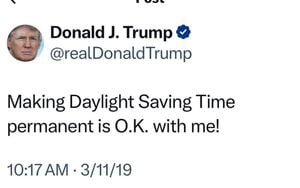Germany is facing mounting challenges as its economic outlook continues to darken amid rising political uncertainty. The Bundesbank, the country’s central bank, has recently downgraded its growth forecasts for the upcoming years, predicting only meager growth as Europe’s largest economy grapples with multiple adversities.
The Bundesbank’s new forecast revealed grim projections, showing expected growth of merely 0.2 percent for 2025 and 0.8 percent for 2026. These numbers are significantly lower than previous estimates, which predicted growth of 1.1 percent and 1.4 percent, respectively. The troubling outlook stresses the increasing difficulties the German economy faces, as it struggles to recover from various structural issues and external pressures.
According to Bundesbank President Joachim Nagel, the current situation is exacerbated by persistent economic challenges and underlying structural problems. He pointed out the staggering impact of Russia’s invasion of Ukraine, which has led to skyrocketing energy prices, significantly affecting Germany's export-driven economy. Manufacturing sectors are particularly hard-hit, contending with falling demand for German goods and the pressures of inflation.
Nagel's remarks come at a troubling time for Chancellor Olaf Scholz, who leads the coalition government comprising the Social Democrats, Greens, and Free Democrats. His government has faced severe challenges and has seen political infighting disrupt potential reforms. Recently, the coalition collapsed, prompting early elections expected on February 23, which adds to the political uncertainty swirling around the nation.
This political turmoil has become central to the public discourse as voters grow increasingly disillusioned with their leaders. There’s widespread concern about the efficacy of Scholz’s three-party coalition, which many argue has been marred by constant squabbles and has failed to address Germany's pressing economic issues. Some economists remain hopeful, hoping the next election might lead to stronger governance capable of tackling the economic malaise.
The impending elections have left many voters feeling anxious, not only about their political leaders but also about the overall economic environment. Citizens are anxious to see how their leaders will handle the uncertainties, particularly as the Bundesbank also expressed worries over tightening fiscal policies amid rising tensions surrounding trade relationships.
Recent statistics have underscored the challenges within the German economy. For October, exports fell sharply by 2.8 percent compared to the previous month, with exports to the United States dropping by 14 percent. This decline signals the weakening of trade relationships with key partners, which becomes particularly concerning with the looming threat of protectionist policies under the incoming U.S. administration.
Trump's return to power may also introduce additional complications, as he has promised to impose tariffs on imports. The potential for protectionism presents what Nagel described as the “biggest source of uncertainty” for Germany, jeopardizing economic output and raising concerns about diminished trade opportunities. Previously, Nagel suggested such tariffs could reduce Germany’s overall output by as much as one percent, amplifying worries over the future of German businesses reliant on foreign markets.
Adding to the discontent, negative sentiment has clouded the German political arena, where the rumblings of dissatisfaction with the current government have become increasingly vocal. Declining confidence has affected Scholz’s position as he braced for the parliamentary confidence vote on December 16, which he is likely to lose. A previous collapse of negotiations to revive the coalition simply highlights the instability at the heart of the government and the apprehensions of the public.
The upcoming elections promise to reset the political stage, but optimism remains reserved. Many are uncertain what direction the new government might take, especially with pressing issues looming over the horizon. Stress over Germany's handling of economic conditions poses risks not only for its citizens but also for its influence within the broader European and global economy.
Political dynamics within Germany are shifting, leaving the future unclear. Amid these uncertainties, the economic outlook grows murkier, and the ramifications of prolonged stagnation could extend beyond its borders. Following the elections, how equipped will the new government be to overcome these mounting challenges?



